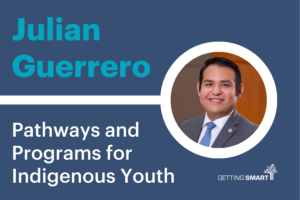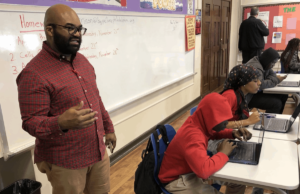Good Schools for the World’s Poorest Neighborhoods

Have you ever thought about bringing great education to the world’s poorest neighborhoods? Now may be time. Bridge International Academies is expanding.
When I visited the massive slums surrounding Nairobi, Kenya a few years ago, I was surprised to learn that most of the children attended private schools. As professor James Tooley shared in his book The Beautiful Tree, edupreneurs in the slums of Africa and Asia are addressing the problem of access to educational quality by developing low cost private schools.
The most important group working in low cost private schools is Bridge International Academies led by Jay Kimmelman. After he sold the EduSoft assessment system to HMH in 2003 he began investigating developing world education. In 2007 he launched Bridge and began to engineer out cost and design in quality. The Bridge “Academy in a Box” leverages data, technology, and scale in order to keep quality up and prices down. Step-by-step instructions for local school managers to set up their school in as little as five months and manage their school to ensure success. Bridge schools are built for less than $2,000 per classroom. Tuition is about $5 per month. With planned enrollment of 1,000 students, the schools break even within one year of opening. Bridge utilizes an automated, cell phone based payment system which is used for almost all student payments and school financial transactions.
Bridge has more than 400 academies in Kenya and over 126,000 pupils enrolled. They launch a new academy every 2.5 calendar days. “Ten years from now we plan to be operating in at least a dozen countries and to count 10,000,000 children as our pupils,” said Kimmelman. “We’re looking for talented individuals across the sectors of education, business, technology, and more to join us in disrupting global education and providing knowledge for all.”
Nook tablets are used to deliver lesson plans to teachers which are also used for assessment and progress monitoring.
Bridge co-founder Shannon May told the WSJ that said Bridge is more cost-effective than state-funded Kenyan schools and provides better teaching. A World Bank study showed the Kenyan teachers taught 2 hours and 40 minutes each day and were absent frequently. Bridge Academies features an 8 hour day with very little teacher absenteeism.
Academic results have been very promising. Compared to their peers attending public schools, Bridge pupils on average gained an additional.32 standard deviations on reading fluency and comprehension over the course of 26 months–the equivalent of 252 additional days of learning. The Bridge effect size for more advanced maths is also significant at .47 and .48 standard deviations for subtraction and word problems, respectively.
Bridge, a Learn Capital portfolio company (where I’m a partner), is hiring in Kenya, India, Nigeria, and Uganda with more than 60 jobs posted.
Investments totaling more than $100 million have also come from Bill Gates, Mark Zuckerberg, Khosla Ventures, Rethink Education, Omidyar Network, NEA, and the IFC.
Affordable schools provided by networks like Bridge are expanding access to quality primary education. With inexpensive mobile devices, digital content, and new blended formats, the revolution of affordable education will soon expand to secondary schools. It’s a revolution that will change history. Maybe it’s time for you to polish your resume and check it out.





Tom Vander Ark
Spark Schools in South Africa is looking for a Director of Student Achievement. They'd love to see experience in a 'no-excuses' network. www.eadvance.co.za
Spark is based on the Rocketship model. See GS feature http://www.gettingsmart.com/gettingsmart-staging/cms/blog/2012/12/a-rocketship-takes-off-in-south-africa/